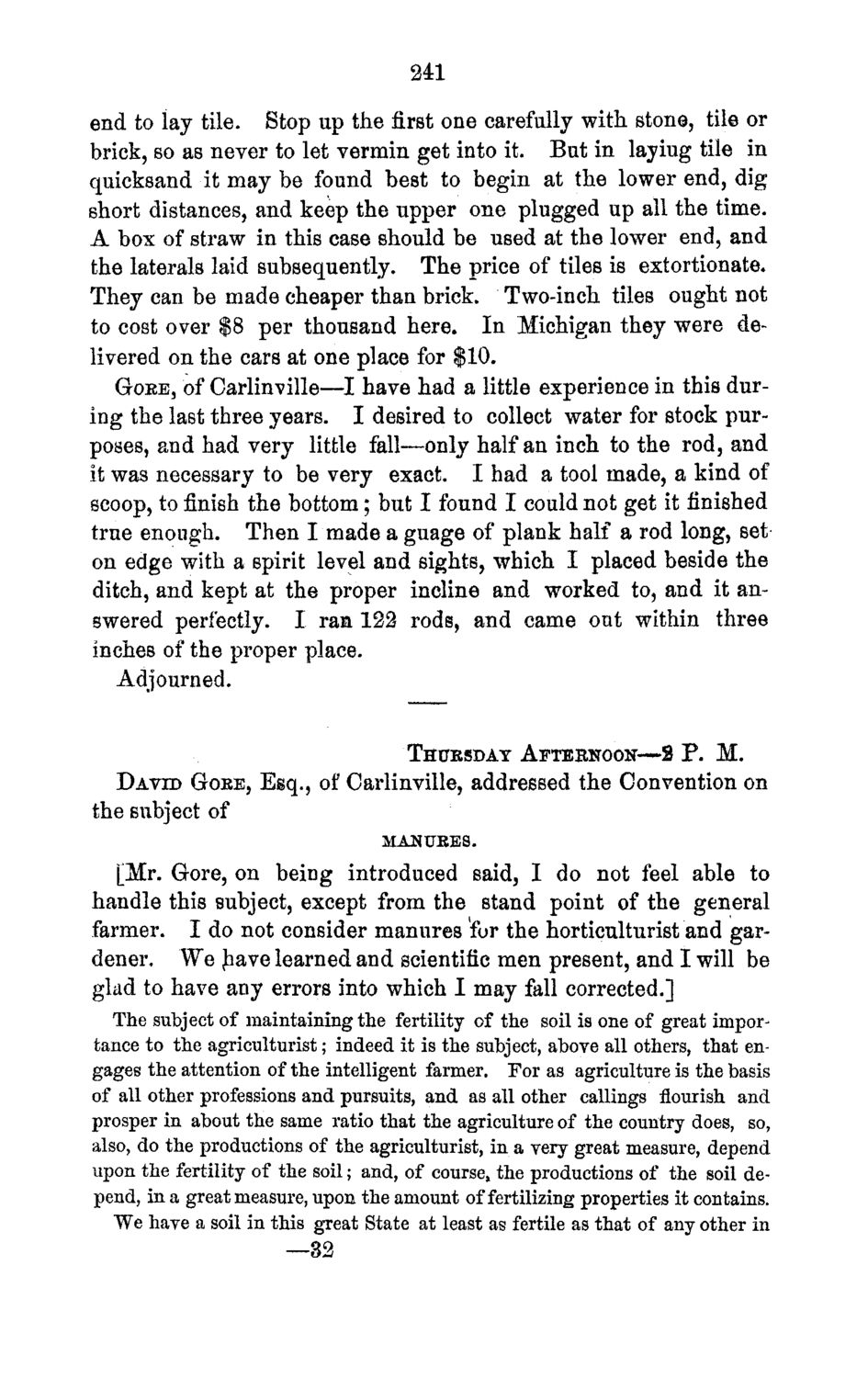| |
| |
Caption: Board of Trustees Minutes - 1870
This is a reduced-resolution page image for fast online browsing.

EXTRACTED TEXT FROM PAGE:
241 end to lay tile. Stop up the first one carefully with stone, tile or brick, so as never to let vermin get into it. But in layiug tile in quicksand it may be found best to begin at the lower end, dig short distances, and keep the upper one plugged up all the time. A box of straw in this case should be used at the lower end, and the laterals laid subsequently. The price of tiles is extortionate. They can be made cheaper than brick. Two-inch tiles ought not to cost over $8 per thousand here. In Michigan they were delivered on the cars at one place for $10. GORE, of Carlinville—I have had a little experience in this during the last three years. I desired to collect water for stock purposes, and had very little fall—only half an inch to the rod, and it was necessary to be very exact. I had a tool made, a kind of scoop, to finish the bottom; but I found I could not get it finished true enough. Then I made a guage of plank half a rod long, seton edge with a spirit level and sights, which I placed beside the ditch, and kept at the proper incline and worked to, and it answered perfectly. I ran 122 rods, and came out within three inches of the proper place. Adjourned. THURSDAY AFTERNOON—2 P. DAVID GORE, M. Esq., of Carlinville, addressed the Convention on MANURES. the subject of [Mr. Gore, on being introduced said, I do not feel able to handle this subject, except from the stand point of the general farmer. I do not consider manures for the horticulturist and gardener. We Jiave learned and scientific men present, and I will be glad to have any errors into which I may fall corrected.] The subject of maintaining the fertility of the soil is one of great importance to the agriculturist; indeed it is the subject, above all others, that engages the attention of the intelligent farmer. For as agriculture is the basis of all other professions and pursuits, and as all other callings flourish and prosper in about the same ratio that the agriculture of the country does, so, also, do the productions of the agriculturist, in a very great measure, depend upon the fertility of the soil; and, of course^ the productions of the soil depend, in a great measure, upon the amount of fertilizing properties it contains. We have a soil in this great State at least as fertile as that of any other in —32
| |